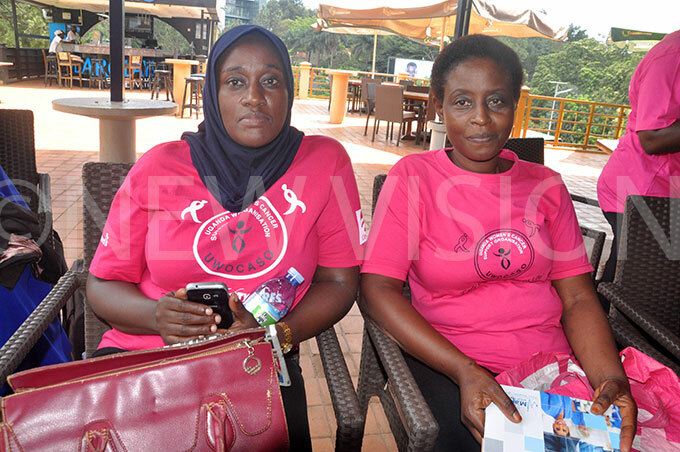Breast cancer linked to poor lifestyle habits, increased awareness - experts
Unhealthy diets are also high on the list of risk factors. For example, Okuku says Ugandans are now adopting the western lifestyle of eating process and fast foods
October was a breast cancer awareness month which is an annual campaign to increase awareness of the disease.
With the campaign having come to an end, Agnes Kyotalengerire talked to breast cancer specialists and they explain why four out of 100 women are diagnosed with breast cancer in Uganda every year.
Data from the Kampala Cancer Registry 2014 indicates that the incidence of breast cancer stands at 3.7%. This implies that four in every 100 women are diagnosed with breast cancer every year.
According to Dr. Fred Okuku the oncology specialist at Uganda Cancer Institute Mulago hospital says the number could be much higher because very few people; about 20% of people with cancer seek treatment.
The remaining 80% do not seek medical help because they lack money to go for screening and hence treatment even after feeling the lump in their breast. Consequently, they resort to use of herbal treatment.
Dr. Okuku attributes the incidence to majorly the screening effect coupled with increased awareness.
"When you screen women for breast cancer you catch more numbers," he explains and adds; more people are being sensitised about breast cancer through the education services that are on- going, this means there is more dissemination of information. As a result, more people are going for screening, unlike before where women did not go for testing.
Additionally, the population has more than doubled, implying that the number of women are being diagnosed with the disease.
Unhealthy diets are also high on the list of risk factors. For example, Okuku says Ugandans are now adopting the western lifestyle of eating process and fast foods which are typically fried abandoning our traditional organic foods. Consequently, this results into weight gain.
Dr. James Kafeero, a medical officer at Uganda Cancer Institute says obesity or being overweight increases the risk of breast cancer as well as colon cancer and endometrial cases.

Okuku concurs with Kafeero and says watching what and how much one eats is key in controlling weight gain. Okuku laments that the inactivity level in women is very high these days. "Women drive to work, sit throughout the day and later drive or use a taxi back home, yet being active helps reduce the breast cancer risk by controlling weight," Okuku advises.
Other risk factors
Age is a number one risk factor of breast cancer as it is commonly seen in women above the age of 30. The older one grows, the higher the risk of developing breast cancer, says Dr. Okuku
Additionally, being female or having breasts is another risk factor as breast cancer is a disease of breast tissue. Breastfeeding is not a risk factor as breastfeeding for more than one year is the best way a woman can protect herself against breast cancer, explains Noleb Mugisha a medical officer at Uganda Cancer Institute. Breastfeeding helps to reduce estrogen levels in the body.
"Breastfeeding is protective, it changes the makeup of the woman's breast cells, thus making them more resistant to cancer. Breastfeeding is another way of getting rid of compounds that are likely to cause cancer in future," Dr. Evelyn Nabunya, a senior consultant gynecologist/obstetrician Mulago hospital explains.
Hormonal replacement therapy is also linked to breast cancer. "Women who are in menopause tend to use creams and supplements containing hormones to replace the reduced estrogen," Kafeero says. Estrogen is a group of hormones that play an important role in the normal sexual and reproductive development in women. They are also called sex hormones.
Aside, Mugisha says a woman's risk of developing breast cancer depends on the genetic make-up. The risk is higher among women with a family history of breast cancer.
Women whose immediate relatives suffer breast cancer are at a higher risk of developing it.
He says the risk is even higher if there has been a history of other cancers such as ovarian cancer, uterine and colon cancers.
He adds a woman who has had breast cancer in one breast is at a higher risk of developing it in the second breast or in the same breast.
The other factor includes beginning menstruation period at an early age like 11 years or experiencing menopause as late as 55 years.
"This means the body produces the estrogen hormone for a long time than expected, thus increasing one's risk of developing breast cancer